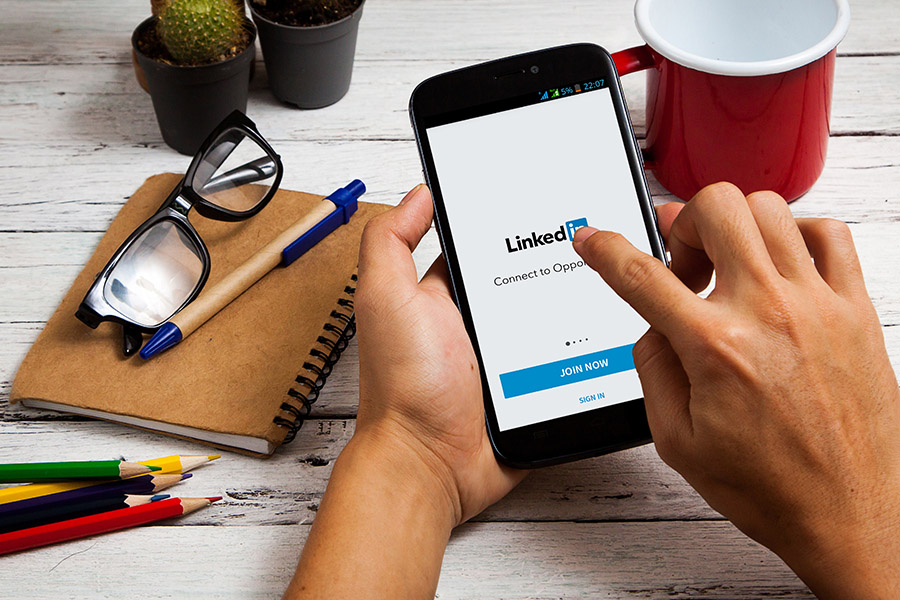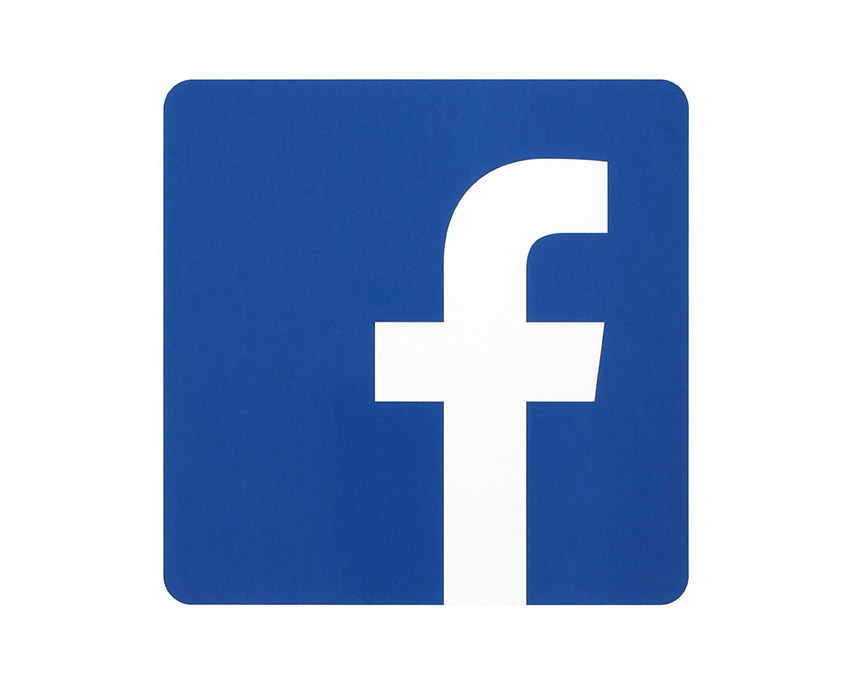Develop Your Online Professional Identity
How social media demonstrates who you are
Social media can be a powerful tool for building and promoting your professional brand in several ways:
- Networking opportunities: Expand your network of contacts, mentors, and colleagues. Social media allows you to connect with people you may never meet in real life. You can do this by commenting on their updates, liking or sharing their posts, or congratulating them on a success.
- Career opportunities: Identify opportunities you didn’t know existed, including industry/course relevant projects, networking events, and professional development ideas.
- Demonstrate your skills, interests and experience: Show others that you are an aspiring professional in your field and what specific interests you have, by adding thoughtful articles, and sharing or commenting about content by others.
![]()
What you post, comment, like, or share contributes to shaping others' perception of you. It is important to remember that social media can be harmful if used inappropriately, so ensure that your interactions remain professional and courteous.
There are many different social media platforms you could use, carefully consider which platforms will work best for you and which are most relevant to your professional field.
Tip: You can expect that recruitment and hiring staff will review your online profiles early on in the hiring process; many have automated systems for this purpose. Therefore, you need to ensure your online brand is professional and matches the image you are projecting in job applications.
If you would like to more information about using social media in your job search, complete the Graduate Job Search module within JCU Employability Edge.
LinkedIn is the world’s largest professional network on the internet. You can use LinkedIn to find the right job or internship, connect and strengthen professional relationships, and learn the skills you need to succeed in your career. More and more employers and professionals expect you to have a LinkedIn profile, so that they can connect with you online and find out more about you. It is also a great way to promote your professional identity and extend your network.

Tips to help you get started:
- Create a profile – head to LinkedIn.com and sign up. For most people, the free version of the program is sufficient. Employers, recruiters and businesses will often sign up for the premium version (at a cost). While setting up your profile, keep your professional identity and brand in mind. What kind of image are you projecting?
- Add a photo – make sure it is a clear, professional looking shot of your head and shoulders. Make the background plain and dress well. Keep the focus on you: the professional. Adding a profile photo means you are up to seven times more likely to be found.
- Background/banner image – this is another opportunity to make your profile stand out. Use an image which adds to your brand.
- Profile intro – create a distinctive headline. Do not leave it as the default, which is your current role and may have nothing to do with where you are going professionally. Make good use of this space – it is the first thing contacts will read, so make it count. Think about using industry related keywords here.
- About section – this is a summary of your relevant skills, knowledge, experience and career aspirations. Consider what you want connections to know about you. Your LinkedIn profile should be much more than your resume. Tell your story here.
- Showcase yourself – complete as many sections as you can in your LinkedIn profile to highlight your achievements, such as Education, Experience etc.
- Adding media – you can also add links to demonstrate your skills (links to projects, videos, images, blogs), to show your creativity, and your breadth of knowledge and experience.
- Create a personal URL – this is a way to reduce the link to your profile to make it easily identifiable. For most people it will be a version of your name. You can add this link to your resume. Search Customise your URL on LinkedIn for the steps.
- Keep your profile up to date – your LinkedIn profile should not be set up and forgotten. Update your profile to let your contacts know that you have completed your course, undertaken a placement, received an award or scholarship, changed jobs, or set up your own enterprise. Allocate time in your schedule to regularly work on your profile.

Connect with others
Now that you have set up your LinkedIn profile, it is time to start connecting.
How
- The first step is to use the Search box at the top of your profile to look for people you know. Type in their name and you will see their profile. If they have a common name, you may see a list of people for you to select from. Once you have found the right person, click on the Connect button. Before you hit the Send Now button, consider adding a note. This is highly recommended as it allows you to personalise your request, which means you are much more likely to receive a positive response.
- Once you have started to make connections, LinkedIn will make suggestions about people you may know based on your profile and current connections. This can really help grow your network.
Why
- You can connect with people you know and they can then introduce you to people in their network.
- You can connect with people you do not know, especially if you have an interest in common.
- LinkedIn can be a great source of job or internship opportunities.
- You can gain feedback on articles or make relevant comments on others posts
- Clever use of LinkedIn will help make you more visible to professionals in your field.
- Join Groups and participate in discussions. Take care with your comments and always be polite and professional. You can find LinkedIn Groups by going to the Search box on your home page and entering topics that interest you, then filtering by groups.
Who
- Firstly, think about people you know. This could be fellow students, work colleagues, or professionals you have met on placement or at professional development events. Also, consider people from other aspects of your life – interests, sporting teams, friends and family – they could all be useful connections and be able to introduce you to others.
- Find people you have something in common with. Search for James Cook University on LinkedIn and you can search JCU Alumni – this is a good source of contacts who have something in common with you - JCU! You can refine your search of JCU Alumni by your discipline and your location, and discover their career paths since graduation and where they are working now.
- Follow relevant people and organisations on LinkedIn for your discipline or field, such as professional associations for your area of interest.
Add content to impress
This is the next piece of the LinkedIn puzzle. You have set up your profile, you have connected with people – how do you keep them interested in you?
To stand out from the crowd, consider adding content to your LinkedIn Profile.
- This could be as easy as sharing a post that is relevant to your field or industry or a topical news item.
- Add an enlightening comment, share your opinion, or point out why something is worth attention.
- You could post an article or a video about your studies, your work, or perhaps your latest research topic.
- Another way to add value is to interview a professional in your field and either write an article or video the meeting. This could be someone you meet at an event or through your placement or practicum. If you are new to interviewing, choose someone who knows you well to be able to support you as you get to grips with this medium.
- Use #Hashtags to help spread your post far and wide.
Action: Go to your downloaded workbook and complete Activity 2
Other Online Marketing Opportunities
"The web is a valuable resource and you can have fun with it, just remember it is a public arena. Ensure it helps, rather than hinders, your career search." GradAustralia Top 100 Book (2020)
Whilst LinkedIn may be the number one website for professional networking, there are many other platforms with slightly different purposes and ways of using them. Don’t forget to link those other websites to your LinkedIn profile that show your professional skillset. There are a number of job boards that have the option for you to complete an online profile. It is important to ensure your profile on these sites is tailored to the type of positions you are seeking.

X (formerly Twitter)
- As most people manage their own X accounts, this platform can allow you to engage directly with people you would normally never be able to connect with. X users will often personally respond to your comments.
- Make a list of influencers to follow – these could be industry leaders or new up-and-comers who talk about the latest trends in your field.
- You can build a community of like-minded people by following people in your area of expertise.
- X is great for following specific topics.
- How to sign up for X

- Most people use Facebook for keeping in touch with family and friends. Be mindful that employers and recruiters will search for you on Facebook to find out more about you, so keep your privacy settings high.
- Given the huge number of Facebook users, it can also be a great networking platform. Make sure your profile is in good shape and your status is up to date.
- Join Groups and get involved. This is a way to take part in discussions about industry trends and topics and could lead to connecting with some interesting people.
- Many employers also use Facebook to advertise their graduate and internship opportunities. They want to engage with interested applicants and keep them up to date with their opportunities.
- Guide to getting started on Facebook
![]()
- Instagram is a great way to show your creative side, tell short visual stories, and help establish a personal brand.
- You can follow your dream employers and industry influencers to help keep up to date with trends.
- The information you find on employers’ Instagram profiles can be useful when researching for your job application or interview. Employers want to know that you want this job not just any job so the more intelligence you have on their activities the better.
- Guide to getting started on Instagram

Blogs
- Blog platforms offer simple, low or no-cost website set up.
- If you enjoy writing and documenting your work, it is a great way of sharing your experience, learning and thoughts.
- How to start a blog
Others
- YouTube – having your own YouTube channel is another way to creatively show your talents and skills. Guide to get started on YouTube and how to post your first YouTube video.
- ResearchGate is a scholarly networking tool used by researchers to connect and collaborate with other academic scholars.
- ORCID – Open Researcher and Contributor ID is an international, not-for-profit organisation which provides an open, international, community-driven, interdisciplinary, central registry of unique and persistent identifiers for individual researchers. Find out more about the JCU ORCID Linker.
Tip: Take care online. While social media can provide wonderful opportunities to connect it can also have pitfalls. These Australian Government websites have a lot of information on staying safe online: Stay Smart Online and ESafety Commissioner.
Additional Resources
- Login to LinkedIn Learning through the JCU website and then search for the video ‘Learning LinkedIn for Students’
- Do this Social Media cleanse before applying for your next role
- Five ways to Clean Up your Digital Footprint